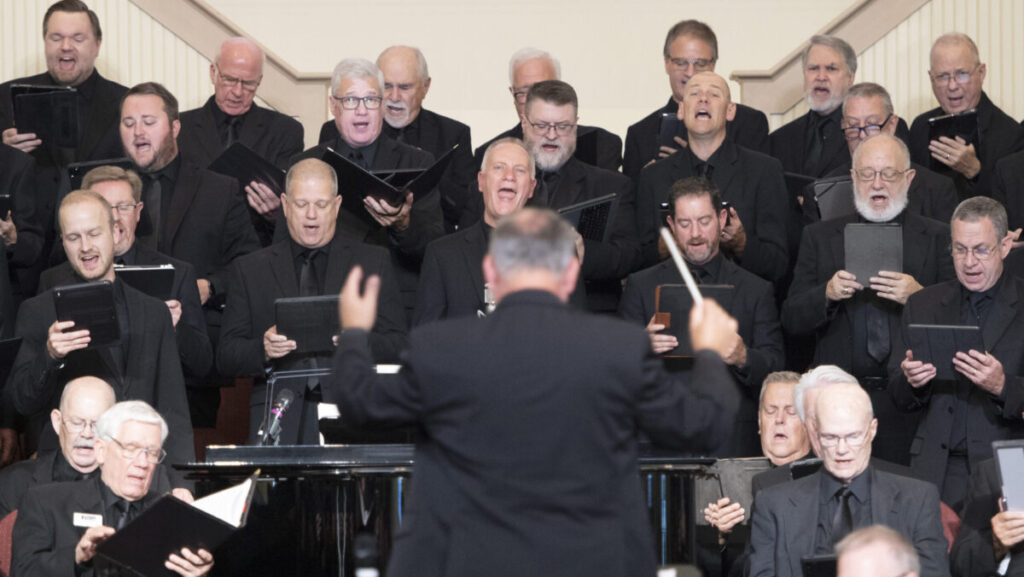Aaron Shust kind of thought that maybe, just maybe, his family had been through the wringer as much as they could stand.
And that was before his wife was reported for child abuse and neglect in April.
“We felt from the beginning that this was an attack from the enemy and were moved to not only pray for truth to prevail, but to worship the Lord in the midst of our suffering, just like Job did when he said ‘The Lord gives and the Lord takes away. Blessed be the name of the Lord,’” Shust, a Christian singer and songwriter, wrote on his blog in June.
The abuse accusations came the day before the second open heart surgery for their third son, Michael, who was born with Down syndrome and major heart defects. His older brother Nicky had been battling an incurable disease since birth that caused him to reject many foods. The disease had nearly cost Nicky his life.
“Just when we thought things were leveling off to what we thought was manageable” with Nicky’s illness, Shust said, Michael was born with a tiny, incomplete heart.
“A lot of tears were shed,” he said. “We prayed, ‘How can we handle this aside from Your grace?’”
God’s mercies came through, he said. But so did the struggles as the family moved forward with two sons bearing the scars of major health problems.
“When things looked like they were going to be health-wise on the up and up, someone in the community accused [Sarah, Shust’s wife] of abuse and neglect,” Shust said. “We had to jump through all the hoops of child abuse services and the threats of taking our children away.”
It was “a nightmare,” like living Job chapter 1, he said.
But much like Job, the Shusts’ story “is not just about Michael, it’s not just about Nicky, it’s about God’s grace throughout,” he said.
God didn’t desert Job, and Job “was bragging on Him that there’s not another god like Him in all the earth,” Shust said.
What makes Job 1:21 so powerful, he said, is not that Job dropped to his knees and asked for deliverance but that he praised. “I read that verse and thought, ‘You know what? I need to praise too.’”
And so he did.
On July 16, Shust released his fifth album, “Morning Rises,” a collection of celebratory songs rising out of his family’s sorrow and heartache of recent months.
“It’s therapeutic to my soul to sing these words when life is tumultuous,” Shust said. “I need to write and find songs that I want to sing, songs that proclaim God as faithful, songs that proclaim God as larger than our situation and our circumstance. I want to sing songs that glorify Him and lift His name up.”
The album, he said, is full of Scripture that applies to anyone, no matter what their circumstances are.
“Everyone has their stories, their trials they are walking through or are about to walk through,” Shust said. “I think of David so often. He preaches truth to himself (in the Psalms). He says, ‘Why are you downcast, oh my soul? Put your trust in God.’ He’s very real with his emotions.”
And Shust said that much like with David’s psalms, songwriting is a way for him to connect with the Lord.
“He had no audience, just sheep. He was just writing for his time with God,” Shust said, noting that many of his own songs don’t make it out of his living room because they are so personal.
With music, “if the theology is accurate and the lyrics are right, we draw near to God and He draws near to us,” he said. “We forget the greatness of God and we need to be reminded.”
Shust said he hopes the album will help people embrace the truth and “look up” if they are downcast.
“My family is going through a dark time right now, but we can say the sun has come,” he said, adding that they look to God knowing that “as the sun rises, He will appear.”
“We cling to that hope,” he said. “We are seeing the light at the end of the tunnel.”
To read more about Shust’s story, visit http://aaronshust.blogspot.com.






Share with others: